A community garden is being replaced with townhouses at the end of its lease, drawing attention to the importance of urban farming and green spaces within a city.
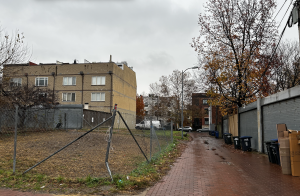
The Temperance Alley Garden has announced that at the end of September 2023, its current land will be turned into townhouses. On their website, the U Street Neighborhood Association has announced they will be hosting “regular workshops & gatherings where people can share their curiosities and grow, together” until the end of their lease. Josh Morin of the Temperance Alley Garden planning committee said these events aim to celebrate the impact the Temperance Alley Garden has had on people, along with sharing important information on growing plants and produce.
“We just open the gates and invite people to come in and learn about gardening,” Morin said.
Along with being able to grow things, there is a sense of camaraderie in community gardens. Toni Christiansen has experience using a green space garden and has grown some produce plants of her own. Christiansen said that when cooking, she prefers using fresh produce for taste and health reasons, but it can be expensive to buy fresh produce in grocery stores. She also said that using items from your garden ensures the quality of the produce and vegetables you consume.
“When it comes out of your own garden or a community garden that you are growing with a bunch of friends and neighbors,” Christiansen said. “You know what is actually going into the soil. You know when the produce is being picked and you know how fresh it is.”

Christiansen said access to a community garden also decreases food waste. Often, produce bought from grocery stores will go bad before people can eat it and are forced to throw it out. Christiansen said that picking produce and vegetables from a reliable source on your own time will decrease the risk of spoiled food.
“If you have a community garden or have your own garden, you can basically go out and pick what you need for that meal. There is very limited waste involved,” Christiansen said.
Temperance Alley Garden is one of many urban farming initiatives in Washington, D.C., that allows individuals to grow their own produce within a city area. Temperance Alley Garden recently partnered with the non-profit group Farm the District, whose goal is to provide and increase healthy, fresh food within urban areas. They also have the desire to educate and inspire future urban farmers to be able to grow their own produce as well, and have done activities ranging from understanding compost, growing mushrooms, and learning to see plants on a spiritual level, which is an educative workshop Morin leads.
But along with learning about plants, Morin said it’s important for urban agriculturists to understand how and where they can grow their produce in a city. The Temperance Alley Garden is a temporary location due to the legal obstacles in permanently converting an empty lot into a green space. Morin said that Farm the District has had to move from other locations in the past due to the landowner wanting to renovate the space into something different. Morin said neighborhood community members need to be active and care for the overall landscape, not just the gardens, to create a well-run and meaningful “agri-hood.”
“If we’re committed to bringing nutrition-dense produce to neighborhoods that are traditionally underserved, if we’re committed to having the positive effects of a vibrant ecosystem,” Morin said. “If we want the benefits of bringing green space and nature and agriculture to our city, we need to become experts at how development and property ownership work in the city.”
Part of revitalizing a neighborhood through gardening is done on a deeper level than turning an empty lot into a green space. Katherine Pfeiler is a horticulture hobbyist and has experience growing all types of plants, from succulents to flowers to produce plants. She has a psychology background and has researched the impact plants and gardening can have on people, especially in urban settings.
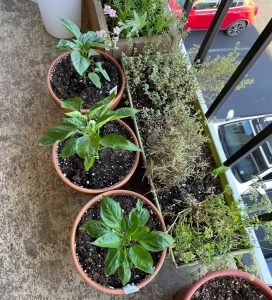
“There is a level of self-fulfillment and actualization by incorporating nature into your day and seeing literally the fruits of your labor,” Pfeiler said, then added with a laugh, “And the vegetables of your labor.”
Pfeiler said that while being in nature, such as walking in a park, can be beneficial; it’s far better to interact with nature. When you care for the environment and green space, Pfeiler said, “there’s definitely an internalization of being part of the human community and being part of the natural cycle of things.” Pfeiler noted that working with dirt and organic products can also boost your immune system and benefit your mental health.
“When we don’t interact with the system of nature we have a disjointed idea of the significance of economics and day-to-day stuff,” Pfeiler said.
Like many green space initiatives within cities, the Temperance Alley Garden is only a temporary space. The community garden is available for a few years before it’s eventually taken down and replaced by something else. And while the growing experience can be beneficial in itself, its temporary status poses long-term problems. Pfeiler said that produce plants are very specific about light, making it hard for individuals to safely transfer the items they’ve grown in a community garden.
The significance that community gardens can have goes deeper than creating an aesthetically appealing green space. Morin and Pfeiler said that being in touch with nature and appreciating your role within it gives an individual a better sense of appreciating their surroundings and community members. Community gardens provide a way to draw people together as a whole.

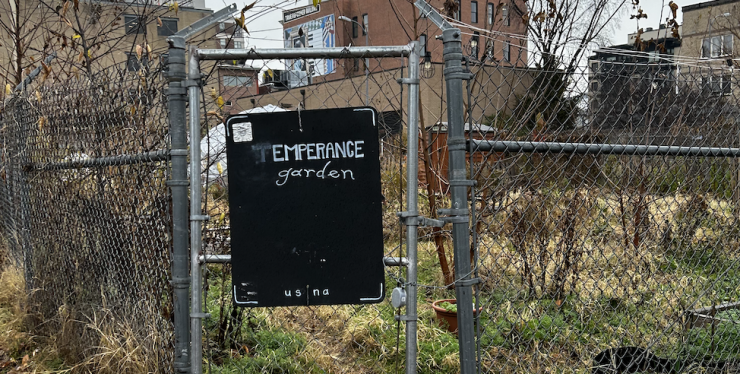
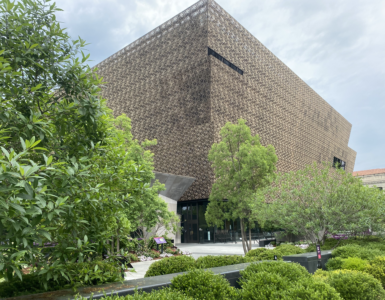
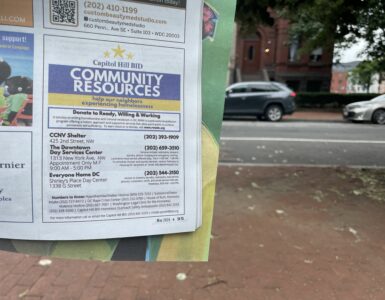
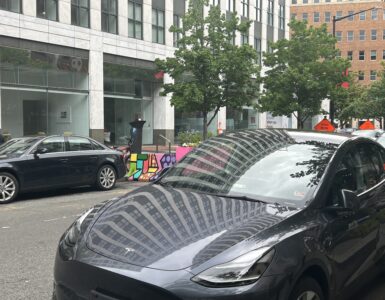










Add comment